Chief political aide Dominic Cummings and PM Boris Johnson clashed this week over scrapping the obligatory license model for the British Broadcasting Corporation (BBC). Johnson believes it needs a “good pruning back” while Cummings is after doing away with it altogether and forcing it to stand on its own under a “subscription model”.
Ex-Culture Select Committee chairman Damian Collins believes this would “smash the BBC from universal broadcaster to one that would work just for its subscribers.”
Similar calls have been made by Sweden’s conservative moderate party against Sweden’s public broadcasters because of waste, unaccountability and left-wing bias. Matilda Ekblad, Östergötland representative complained, “I don’t want to pay for overweight dogs or how priests find love.”
What is the BBC?
The BBC is a publicly financed broadcasting system in Great Britain, operating under royal charter guaranteed until 2027. It once held a monopoly on television in Great Britain from its introduction until 1954 and on radio until 1972. It is largely financed via annual television licensing fees. These are paid by those who watch or stream live TV.
It offers five radio networks in Britain, ranging from popular music to news and information services, as well as national television channels.
Under its charter, the BBC may not advertise or broadcast sponsored programs. It is required to refrain from broadcasting any opinion of its own on current affairs and matters of public policy and to be impartial in its treatment of controversy.
Why do we need the license fee?
BBC’s TV broadcasting sector employs 25,000 people, with a further 50,000 in the wider TV production sector alone. This doesn’t include the 5 radio channels and online media.
Globally, the BBC is seen as a beacon of British values, with a unique ability to showcase those to the world. It is one of the most recognised and trusted brands, reaching over 400 million people around the world every week. There is value to providing British cultural content that wouldn’t be provided by the market. As a foreign policy tool, it exports both entertainment and news services.
Its content has shaped British and world culture for nearly 100 years. It exists in a world of ever-faster technological, social and economic change. But it serves unique audiences to inform, educate and entertain that would not be provided under free-market competition.
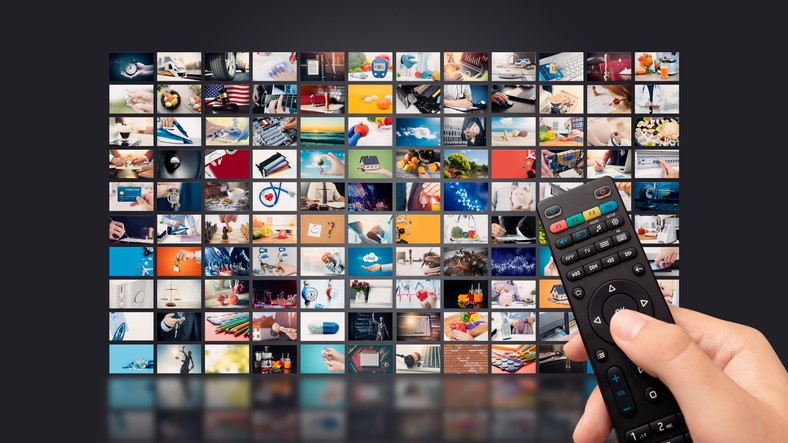
At home, the BBC can take risks that may not be possible for other, more commercial broadcasters. This enables it to produce programmes that commercial channels cannot afford to make. Either because of the upfront cost, or the niche nature of the audience generating too little in advertising revenue. In doing so, it can support the commercial sector with a pipeline of new talent and creativity and open our eyes to issues and experiences we may not otherwise see.
It is worth recognising that in 2018, the BBC still spent over four times as much on original UK programming as Netflix, Amazon Prime and all the other subscription streaming services put together. Blue Planet, Sherlock Holmes, Line of Duty, Peaky Blinders, Silent Witness, Luther, Ashes to Ashes to name but a few.
The impartiality prevents private interest influence via advertising or ownership by global media conglomerates. It needs funding, and the tv licence has been that means of keeping the lights on.
Consider the alternatives
A subscription to Sky channels is far more expensive. Their most basic bundle comes to £22 monthly with the most comprehensive over £100, against the annual licence fee £154.50. While they offer more variety, it opens the door to the exclusion of viewers who cannot afford such premiums. When you have the Murdoch’s buying Formula 1, football and cricket rights and forcing customers to pay for access on different channels – one for weekdays, another for weekends, it really starts stacking up. Cricket test matches are multi-day affairs, forcing customers to cough up or go without.
A ‘soft’ repeal of license fees could merge the Netflix, Disney+, Sky subscriptions with a new levy when people buy any package in the UK (Amazon to Formula 1) so people would pay by default. This would prevent advertisements but would also include stripping back the BBC to focus on remaining the respected, go-to source of factual news reporting and quality documentaries globally as its principal raison d’etre.
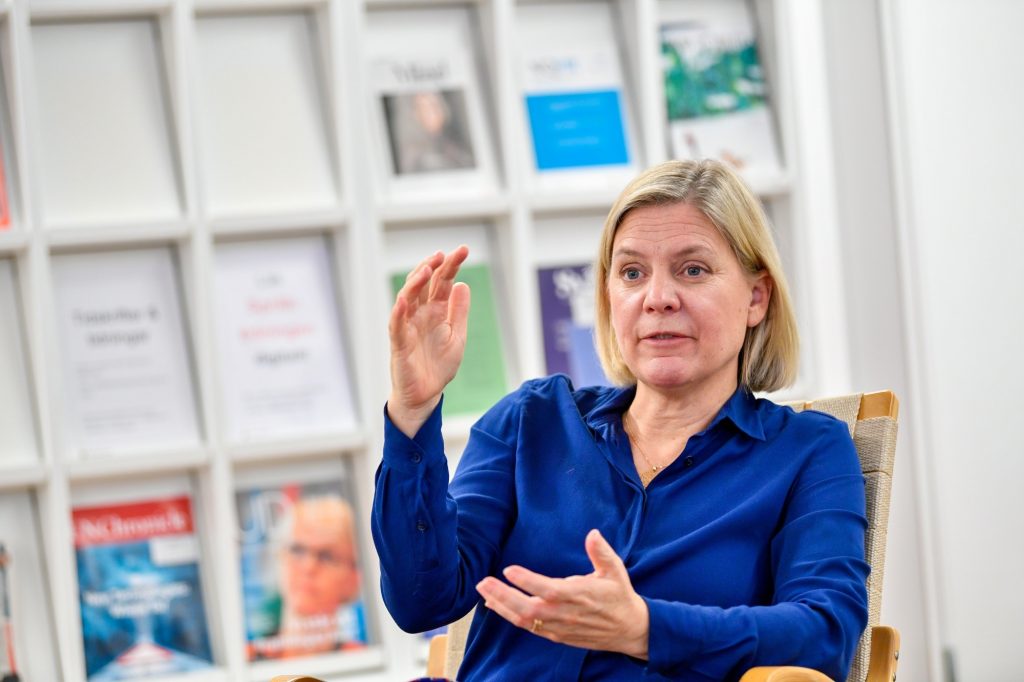
For its quality reporting and diligent fact-checking, the BBC deserves a degree of special treatment. One only needs to spend a few days in the United States to see the watermark for where we would end up if we pander to outside financing and advertising agencies. What will it be: Fox News or CNN?
Why do some people want to scrap the license fee?
Most people in the UK are quite happy to have advertising-free television broadcast on the BBC. For those who live outside large cities like London and Manchester, they feel it has a metropolitan liberal bias that doesn’t align with their views or only delivers watered down comedy that wont trigger anyone.
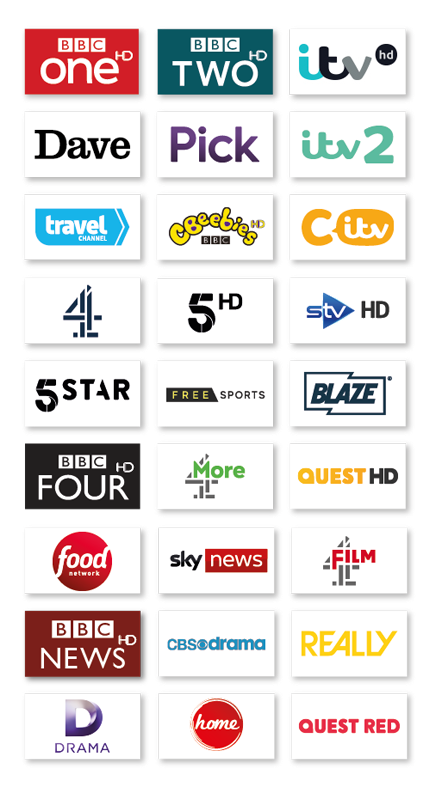
Question Time and the Today Programme have descended into being confrontational rather than informative. The BBC website courts low standards of journalism. If people are forced to pay for something, they want the service delivered to be first-rate, especially with the heritage of an institution like the BBC.
When 13.3 million UK households in 2019 were now subscribed to some popular TV streaming platform, a growth of 19% on 2018 according to Ofcom report, it isn’t surprising many people feel they are double paying. When you buy a TV, it comes with subscription packages in which the BBC channels are few among many. This can lead to viewers feeling they are paying two subscriptions, one compulsory, the other voluntary.
The TV licence is marred by a bad rap. Enforcement officers regularly check-up on households and issue threatening letters, and up to £1000 fines under civil offences.
If people do watch live-streamed television, even via other providers, this may be using the BBC infrastructure. The transmitters used and maintained by the BBC are also used by other broadcasters. That’s why paying for watching television makes a lot of sense. Just like any other service, you pay if you want to use it. Otherwise, with too many free riders, the model breaks down and so too does the quality of service.
Bringing the BBC into 21ST Century
There needs to be a better way of funding in a world of Netflix with multitudes of channels that were not available last century. Britain only had two channels in 1960, BBC and ITV. BBC 2 arrived in 1964.
As with many other things that are disposed of by reactionary minorities, the BBC’s loss would be an irreversible catastrophe for British standards of television broadcasting. Who makes the best drama series, finest documentaries and most neutral news reports? The BBC. Wildlife programmes? Attenborough wasn’t commissioned by any US station to make his ground-breaking Life On Earth series in 1979, and the other subsequent series, each better than its predecessor. The standard he set is being followed by a newer generation of brilliant talent working for the BBC, all paid for by the TV licence fee. The licence fee is a modest cost to pay for all the above. Could it be managed better? Undoubtedly. Could it be funded differently or reformed? Likely. Should the license fee remain, concessions toward greater transparency and accountability to payers must be at the heart of the BBC’s funding model? The fee has been rising as the number of cancellations increases. There will come a tipping point when rising premiums mean the payers are insufficient to finance the wide array of media.
Is a subscription-based model the answer?
The government’s own report into the license fee shows moving to a subscription-based service would cull a lot of BBC services. Many of these are cherished by their audiences. Concerns abound that such a move would drastically reduce the quality of services that remain.
It becomes hard to justify the fee when BBC is not the only broadcaster anymore. With only ITV, it was tolerable. But today, with more broadcasters than you can shake a stick at, it is insupportable. Not only that, but with the ability to watch television online, it is also unenforceable. The TV licence is living on borrowed time.
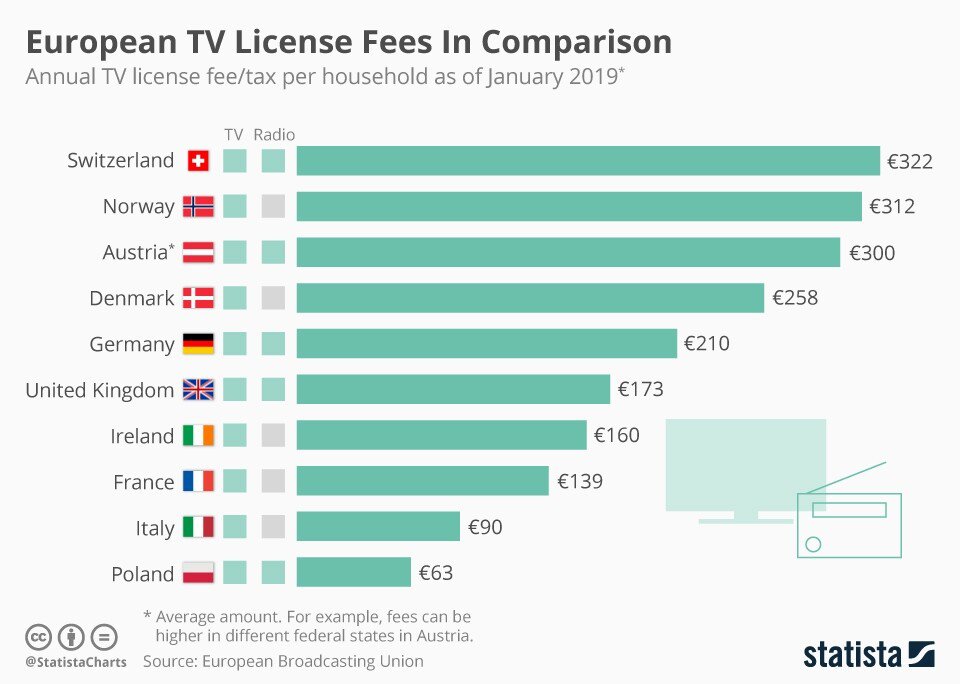
Christopher Snowdon, Head of Lifestyle Economics at the IEA, posted a tweet viewed millions of times, stating “supporters of the BBC make mutually exclusive claims when they say that the organisation produces world-class, universally adored programmes for a bargain price but that it would be financially ruinous if the licence fee were replaced by a subscription (in which those who pay can watch and those who don’t are locked out).” He believes a business that is confident in its product does not require legal compulsion. If £154.50 is voluntarily paid for the privilege of Attenborough, Panorama, Eastenders and the like, then it is fine. But, if not, it would be immoral to force those who don’t want to watch the BBC to subsidise those who do.
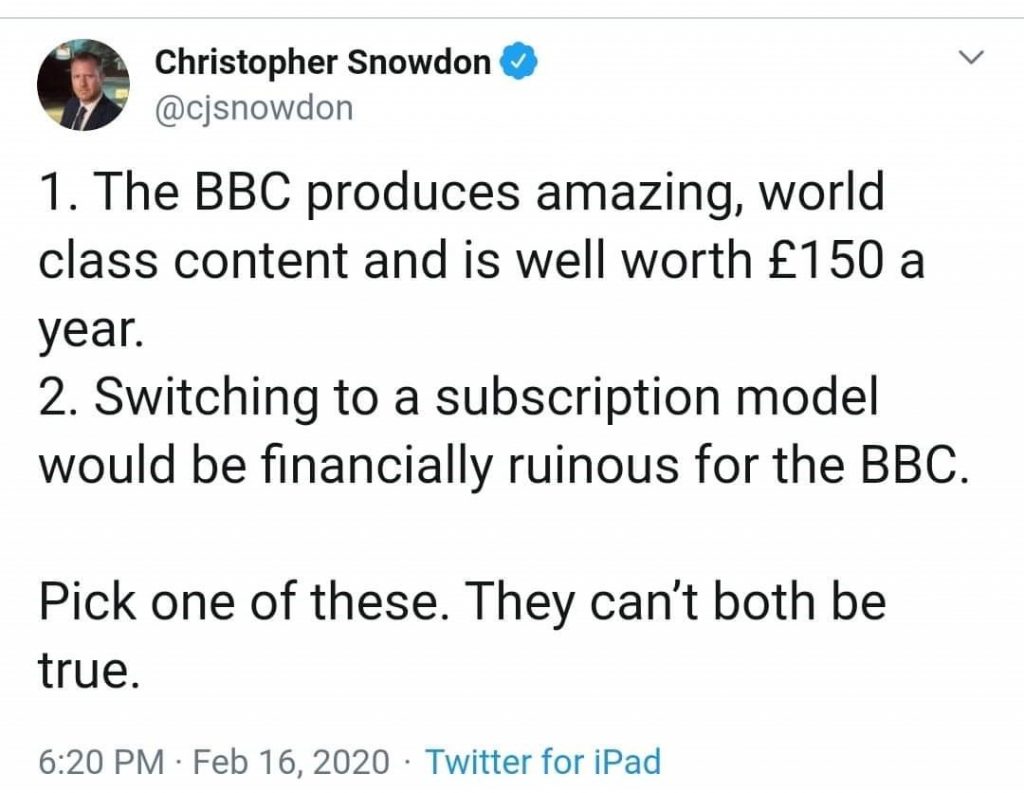
If not subscription or license, then what?
Alternatively, with no TV license or subscription, the only means of funding the BBC as a “public service” is through income tax, and that would be subject to cyclical budget cuts. You could picture it now: NHS or BBC, which do we fund? Bureaucracy and collection costs would fall as it integrates within the remit of income taxes and such regulatory and punitive supervision would no longer be needed.
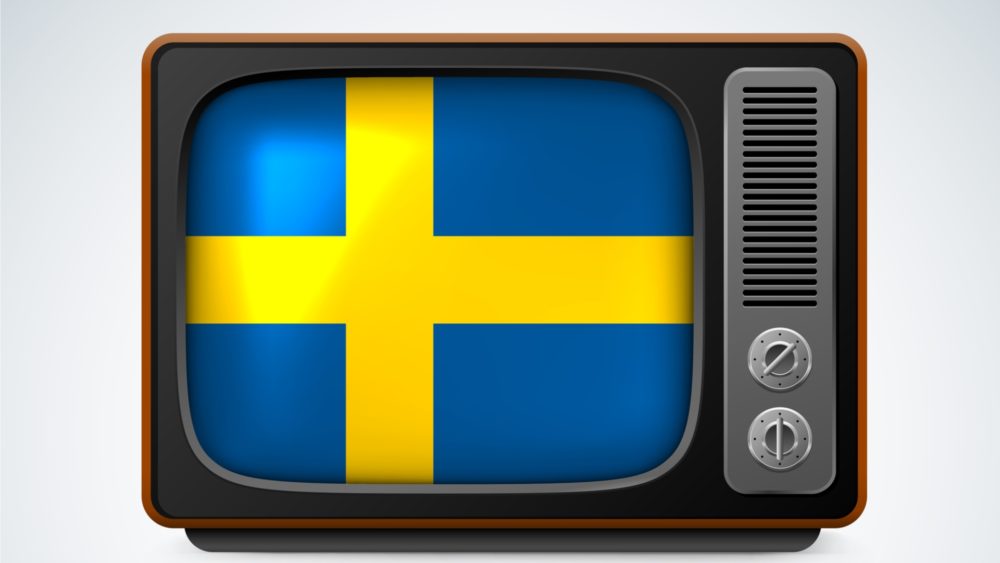
Those voicing the BBC subscription service will be fine if their content truly is “world-class” as they claim, rather conflate popularity with quality. Do people tend to pay for high-quality journalism when the Sun is the newspaper with the highest readership in the country?
This is rather apples to oranges with the different business models and price points. It would be equivalent to saying Ferraris are terrible because Ford sells many Fiestas.
What if the licence fee was abolished altogether?
We are in an age of streaming. Terrestrial channels may have their place, but at what cost? If the BBC truly is a lot more than a public service broadcaster, but a useful soft power foreign policy tool to keep Britain relevant in the modern world; then so be it. But it ought to remain high quality and the deadwood removed. An open World Service would be a good advertisement overseas for potential customers through its history of journalistic rigour garnering global respect. After all, BBC World Service is 1% of the BBC budget and paid for by the Foreign Office, not the licence fee payer.
Mutually Exclusive
The BBC cannot simultaneously be ‘world class’, and not survive on its own two feet without legalised extraction of fees. With the large income from publications, merchandise, selling programme rights and access to transmitters; there is a strong case for the public not to subsidise the BBC anymore. Competition in TV and radio markets has allowed consumers a wider choice, often at lower comparative prices. The BBC should adopt or be forced to trim right back.
The BBC should set itself up not as an entertainment channel but as the factual source and the world leader in news and journalism, restoring its preeminent place in World Press Freedom rankings, rather than it’s current place of 33/180. Where Netflix or the new Disney channel fill us up with content, the BBC has the potential to do the same for our core competence.
Undoubtedly, the BBC has lost some of its aura. For the BBC to improve, it needs less controversial viewpoints and an impartial digest, expressing less emotive, borderline clickbait headlines to keep up with the Sun’s or Daily Telegraphs.
Anti Competitive, Socialised Cross Subsidising
If the BBC had to depend on being popular for more money, it would actually be pressured to make better content.
A subscription model with minimal government support to ensure quality journalism may be the answer or integrating a flat income tax across the board like Sweden to lower the enforcement costs of the current license fee. These have been running into the hundreds of millions of pounds.
What’s more, technology has rendered the public good argument obsolete – one can exclude people from watching if they do not pay, through digital decoders. In other words, broadcasting has become a ‘club good’. People can be excluded from its services and different organisations can provide different bundles of services which we can choose to purchase or not.
The only real justification for maintaining a public service broadcaster would be for things the market could or would not otherwise provide. Children’s television has been killed off by advertising regulation, a handful of news and current affairs and radio shows which older people use to feel relevant and stay connected to wider society are such examples.
In fact, in many areas the BBC uses its privileged position of guaranteed revenues to directly compete in areas where commercial provision works well, from bidding to show movies and sports programmes, to cross-subsidising its news website and the provision of local news in direct competition with increasingly hard-pressed local newspapers. There is no real mechanism for consumers to hold the BBC to account for the quality and content of its output and it is undermining other organisations that also contribute to the building up of social capital.
Public Sector Crowding Out
In conclusion, the BBC has crowded out private investment into various media forms with its government and legal backing where it really has no right to be. It is pandering in trying to placate too wide an audience. The regressive nature of the payment structure means the cost of such socialised cross-subsidising models does more harm to disposable incomes of less affluent households. We need a different model and not one that tries to appease all potential viewers in order to justify itself.
A slimmer, trimmer BBC would free up consumers money that could more efficiently deliver wider media access – from better-funded local news stations to sports access – in a world where it is unnecessary for one broadcaster to be the “go to for everything”. Just as Ferrari isn’t in the business of mass production a la Henry Ford “you can have any colour you like, so long as it is black.”
Forcing others to contribute towards a service you like but they are unwilling to pay for via government is just another cloaked form of rent-seeking. People should be free to opt-out or at the very least be able to integrate their payments with their subscription of Netflix, Disney+ or Sky.
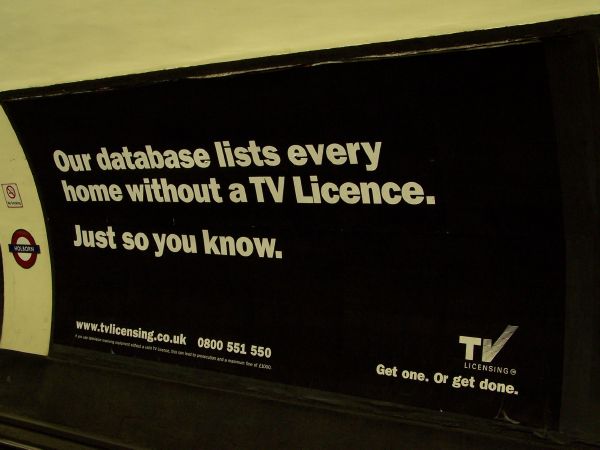
Lionel Robbins once described the capitalist competition as the process by which ‘thousands of people cast their votes for the hundreds of products and services on offer, and from the competition to win their votes, better and better products and services arise.’


